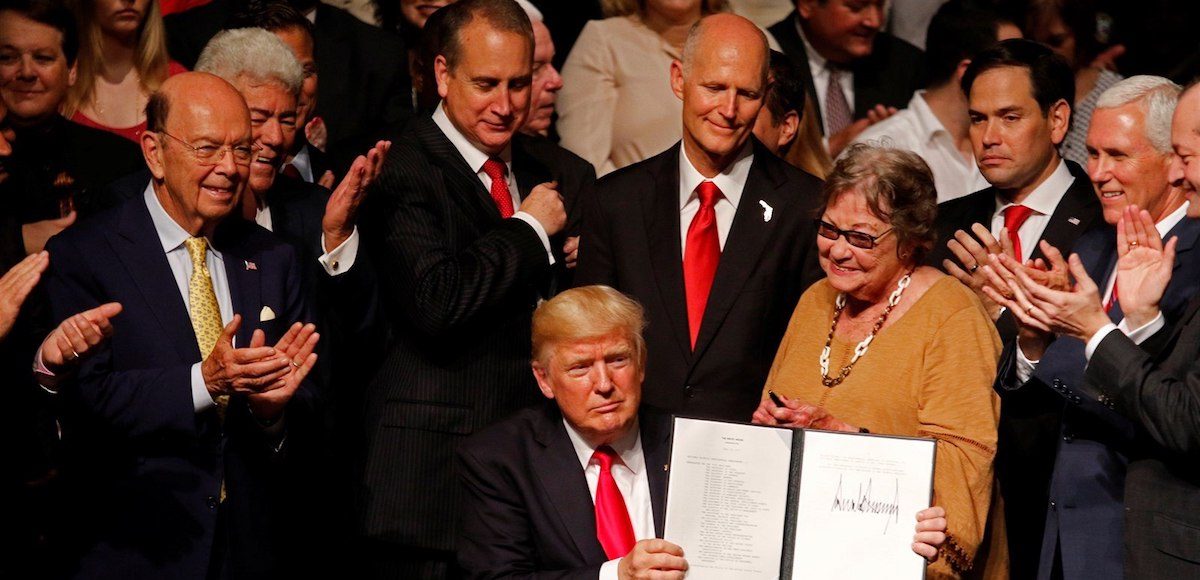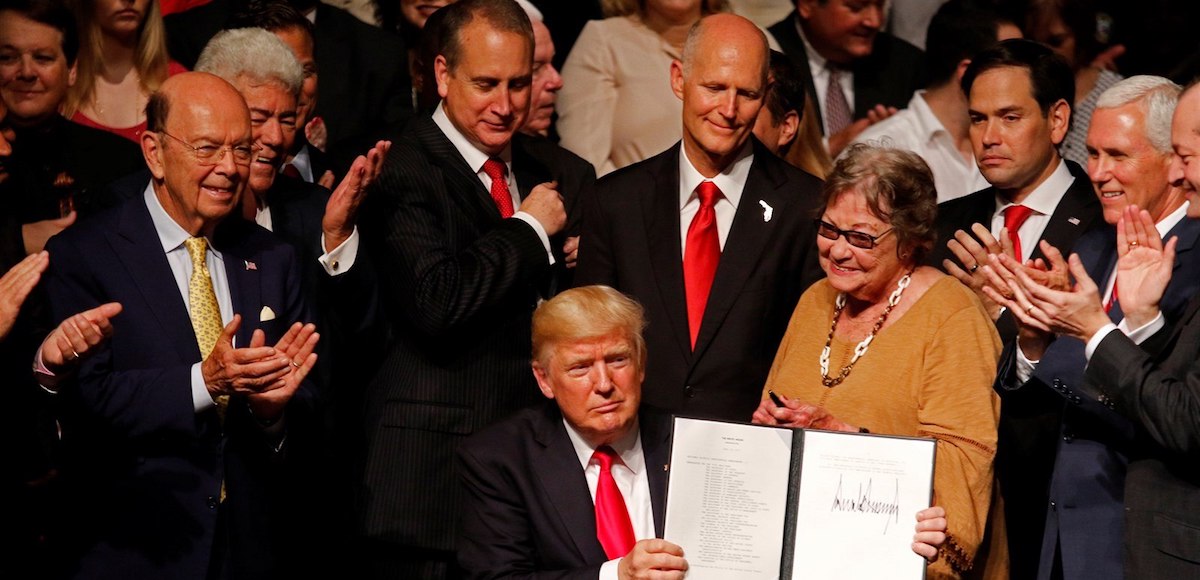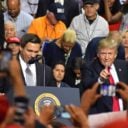

President Donald Trump on Friday ordered tighter restrictions on Americans traveling to Cuba and a clampdown on U.S. business dealings with the Castro regime. (Photo: Reuters)
President Donald J. Trump on Friday in Miami, Florida announced his new Cuba policy, which reverses much of the Obama era easing of travel and trade. He was warmly received by Cuban-Americans and the symbolic importance of the policy wasn’t lost on those in attendance at the event.
While it is fair to say the move marked a major campaign promise kept to the Cuban-American population in the nation’s largest battleground state, it also fair to say it doesn’t rollback everything the previous administration did.
“You can’t put the genie back in the bottle 100 percent,” a senior administration official conceded Thursday.
But there are significant changes made that prevent the Castro regime from enriching themselves through concessions given by the Obama administration’s concessions and restrictions to dealings that benefit the regime and its military.
“Our new policy begins with strictly enforcing U.S. law. We will not lift sanctions on the Cuban regime until all political prisoners are free, all political parties are legalized and free and supervised elections are scheduled,” the President said. “We challenge Cuba to come to the table for a new agreement that is in the best interest of their people and our people, including Cuban-Americans.”
One of the most important changes deals with transactions with the Business Administration Group, S.A — GAESA — which will now be prohibited. GAESA is the company of the Cuban Armed Forces that controls 60% of the Cuban economy, or as the Trump Administration put it “virtually every profitable sector of the economy.”
Here’s what the White House says it will do.
President Donald J. Trump is changing the policy of the United States toward Cuba to achieve four objectives:
- Enhance compliance with United States law—in particular the provisions that govern the embargo of Cuba and the ban on tourism;
- Hold the Cuban regime accountable for oppression and human rights abuses ignored under the Obama policy;
- Further the national security and foreign policy interests of the United States and those of the Cuban people; and
- Lay the groundwork for empowering the Cuban people to develop greater economic and political liberty.
Summary of Key Policy Changes:
- The new policy channels economic activities away from the Cuban military monopoly, Grupo de Administración Empresarial (GAESA), including most travel-related transactions, while allowing American individuals and entities to develop economic ties to the private, small business sector in Cuba. The new policy makes clear that the primary obstacle to the Cuban people’s prosperity and economic freedom is the Cuban military’s practice of controlling virtually every profitable sector of the economy. President Trump’s policy changes will encourage American commerce with free Cuban businesses and pressure the Cuban government to allow the Cuban people to expand the private sector.
- The policy enhances travel restrictions to better enforce the statutory ban on United States tourism to Cuba. Among other changes, travel for non-academic educational purposes will be limited to group travel. The self-directed, individual travel permitted by the Obama administration will be prohibited. Cuban-Americans will be able to continue to visit their family in Cuba and send them remittances.
- The policy reaffirms the United States statutory embargo of Cuba and opposes calls in the United Nations and other international forums for its termination. The policy also mandates regular reporting on Cuba’s progress—if any—toward greater political and economic freedom.
- The policy clarifies that any further improvements in the United States-Cuba relationship will depend entirely on the Cuban government’s willingness to improve the lives of the Cuban people, including through promoting the rule of law, respecting human rights, and taking concrete steps to foster political and economic freedoms.
- The policy memorandum directs the Treasury and Commerce Departments to begin the process of issuing new regulations within 30 days. The policy changes will not take effect until those Departments have finalized their new regulations, a process that may take several months. The Treasury Department has issued Q&As that provide additional detail on the impact of the policy changes on American travelers and businesses.







